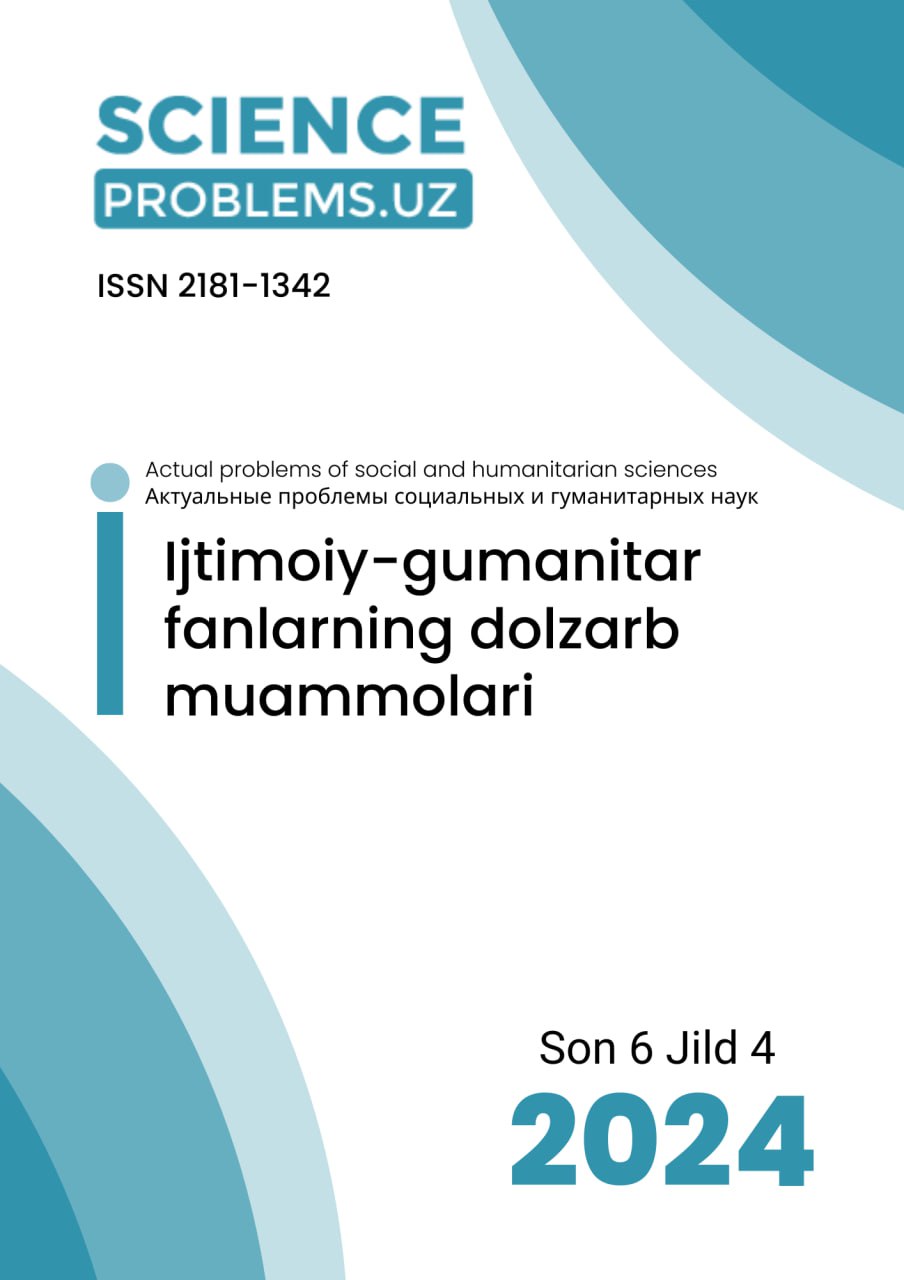THE CONTRIBUTION OF “GREEN” ACCOUNTING IN FINANCIAL MANAGEMENT TO THE SUSTAINABLE DEVELOPMENT OF ENERGY INDUSTRY COMPANIES IN UZBEKISTAN: METHODOLOGICAL ASPECT
DOI:
https://doi.org/10.47390/SPR1342V4I6Y2024N33Keywords:
green accounting methodology, financial management, sustainable development, energy industry companies, Uzbekistan.Abstract
The article is devoted to determining the contribution of “green” accounting to the financial management of sustainable development of companies in the energy industry in Uzbekistan. For this purpose, a regression model was compiled that revealed this contribution. The theoretical significance of the author's fundamental conclusions is due to the fact that they clarified the provisions of the concept of energy industry management in support of sustainable development. An improved green accounting methodology will improve the efficiency of financial management of sustainable development of energy industry companies in Uzbekistan.
References
Bhusal, P., Shrestha, S.M., Dhital, N.B., ...Das, B., Pandit, R. (2024). Analysis of in-vehicle air quality and load factor as environmental and social dimensions of sustainable urban mobility: A case study from Kathmandu valley, Nepal. Journal of Air Pollution and Health, 9(1), 41–58.
Chang, G., Osei Agyemang, A., Faruk Saeed, U., Adam, I. (2024). Assessing the impact of financing decisions and ownership structure on green accounting disclosure: Evidence from developing economies. Heliyon, 10(5), e26672. https://dx.doi.org/10.1016/j.heliyon.2024.e26672
EBRD (2024). Пятилетняя стратегия развития Узбекистана. Available at: https://www.ebrd.com/documents/osg/am22-uzbekistan-r.pdf (data accessed: 18.03.2024).
Global Green Growth Institute (2024). Global Green Growth Index: Uzbekostan 2010-2022. Available at https://ggindex-simtool.gggi.org/SimulationDashBoard/country-profile (data accessed: 18.03.2024).
Golfam, P., Ashofteh, P.-S., Loáiciga, H.A. (2024). Forecasting long-term energy demand and reductions in GHG emissions. Energy Efficiency, 17(3), 19. https://dx.doi.org/10.1007/s12053-024-10203-2
Han, X., Cai, Q. (2024). Environmental regulation, green credit, and corporate environmental investment Innovation and Green Development, 3(3), 10013. https://dx.doi.org/10.1016/j.igd.2024.100135
He, Z., Taylor, T.K., Andersen, M., Whitney, B. (2024). A census of the green economy: measuring marijuana employment, businesses, and payroll in four states. Applied Economics. https://dx.doi.org/10.1080/00036846.2024.2311066
Lin, J., Zeng, Y., Wu, S., Luo, X.R. (2024). How does artificial intelligence affect the environmental performance of organizations? The role of green innovation and green culture. Information and Management, 61(2), 103924. https://dx.doi.org/10.1016/j.im.2024.103924
Liu, S., Padhan, H., P., J., Jose, A., Rahut, D. (2024). Do green trade and technology-oriented trade affect economic cycles? Evidence from the Chinese provinces. Technological Forecasting and Social Change, 202, 123334. https://dx.doi.org/10.1016/j.techfore.2024.123334
Olimovich, K.R. & Rasulovna, K.F. (2022). Influencing Factors on Changes in Accounting Policies, Res Militaris, 12(2), 125-134.
Pesce, S., Mamy, L., Sanchez, W., ...Pelosi, C., Leenhardt, S. (2024). The use of copper as plant protection product contributes to environmental contamination and resulting impacts on terrestrial and aquatic biodiversity and ecosystem functions. Environmental Science and Pollution Research. https://dx.doi.org/10.1007/s11356-024-32145-z
Rehman, A., Batool, Z., Ma, H., Alvarado, R., Oláh, J. (2024). Climate change and food security in South Asia: the importance of renewable energy and agricultural credit. Humanities and Social Sciences Communications, 11(1), 342. https://dx.doi.org/10.1057/s41599-024-02847-3
Soto, G.H. (2024). The role of outward foreign direct investment as a filter for high energy intensity economies in the European Union. Applied Energy, 361, 122941. https://dx.doi.org/10.1016/j.apenergy.2024.122941
Toke, L.K., Kalpande, S.D. (2024). Critical analysis of green accounting and reporting practises and its implication in the context of Indian automobile industry. Environment, Development and Sustainability, 26(2), 3243–3268. https://dx.doi.org/10.1007/s10668-022-02816-3
Wasim, M.S., Amjad, M., Abbasi, M.A., ...Ali, A., Khan, B. (2024). An efficient energy management scheme using rule-based swarm intelligence approach to support pulsed load via solar-powered battery-ultracapacitor hybrid energy system. Scientific Reports, 14(1), 3962. https://dx.doi.org/10.1038/s41598-024-53248-0
Wu, J. (2024). Role of green finance and carbon accounting in achieving sustainability. Humanities and Social Sciences Communications, 11(1), 128. https://dx.doi.org/10.1057/s41599-023-02492-2
Xue, S., Jiang, Y., Wei, Q. (2024). Green financial accounting and transition in the mining sector in emerging economies. Resources Policy, 89, 104683. https://dx.doi.org/10.1016/j.resourpol.2024.104683








